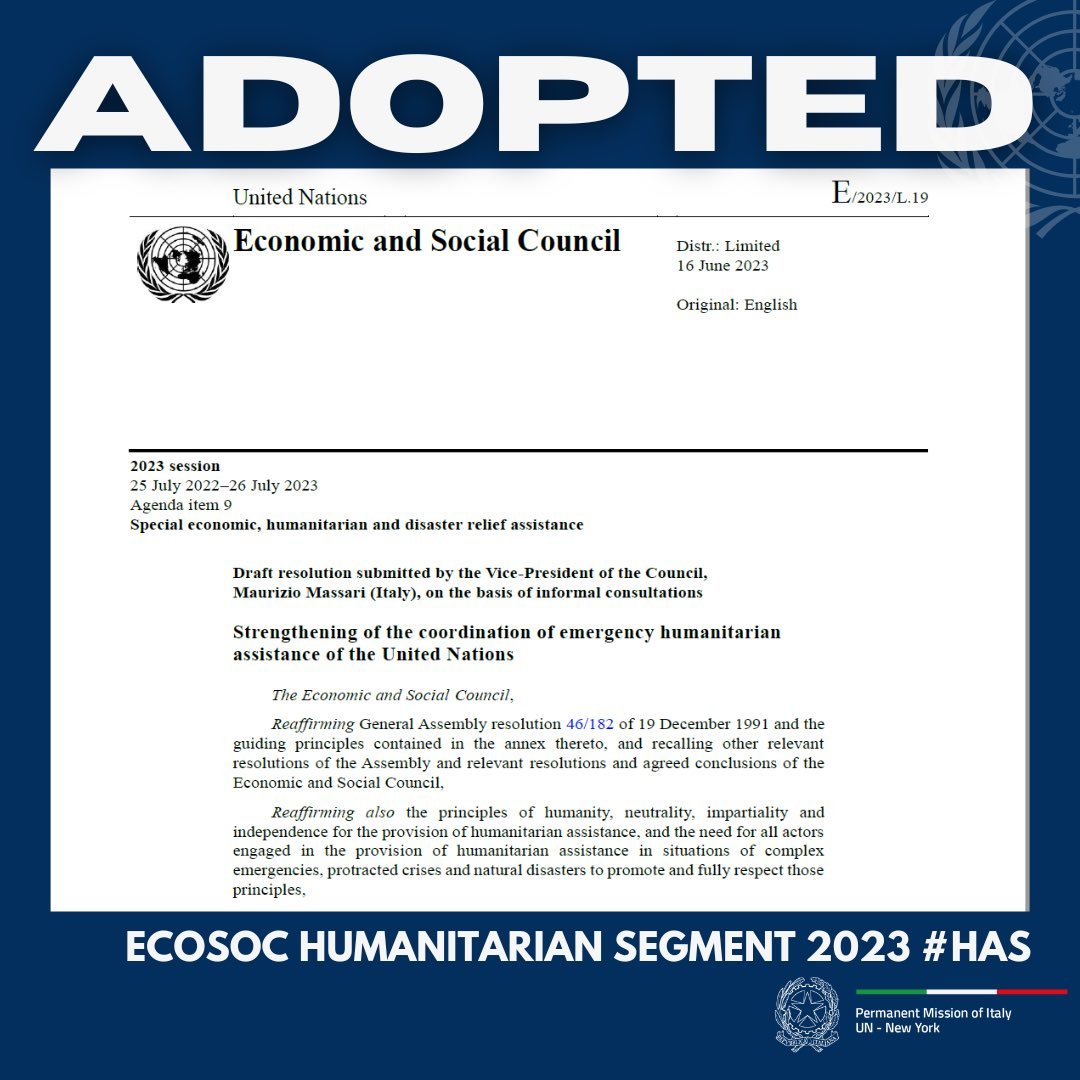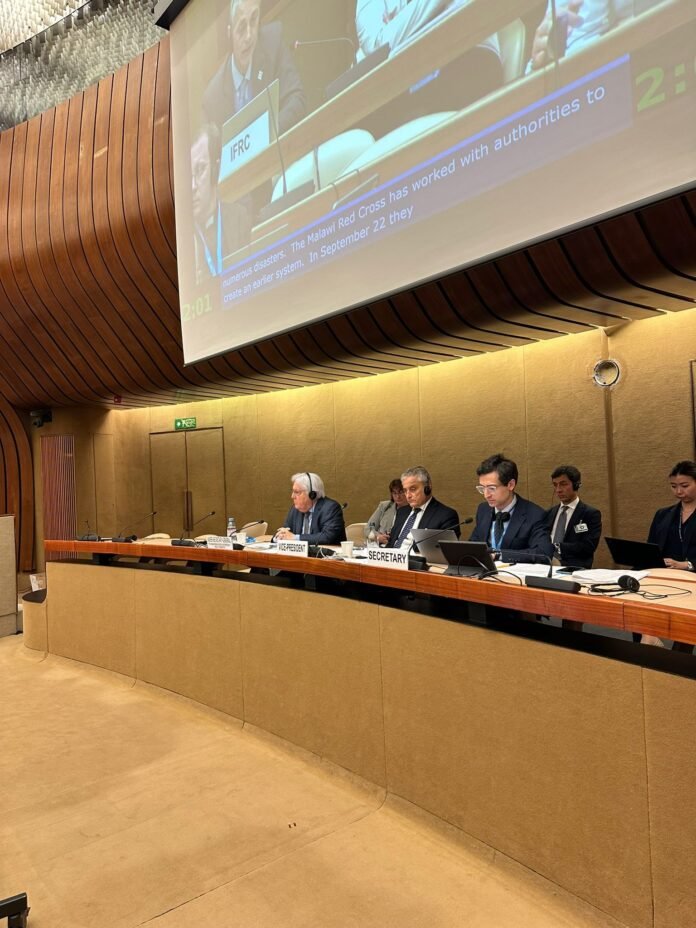GENEVA, JUNE 23 – The three-day high-level Humanitarian Segment of ECOSOC (Economic and Social Council) meetings concluded today in Geneva, marking a significant moment in the UN debate on humanitarian assistance. Chaired by the Italian Permanent Representative to the UN, Ambassador Maurizio Massari, the discussions concluded with the adoption of an important resolution aimed at improving the coordination and effectiveness of UN humanitarian assistance worldwide and its life-saving aid to populations affected by conflicts, famines, and natural disasters. Italy, along with Kenya, led the negotiations, and despite diverging positions among some Member States, the resolution was adopted by consensus, without a vote.
The resolution reaffirms the importance of international humanitarian law and includes progressive language on the prohibition of attacks against objects essential for the survival of civilian populations, the protection of civilian infrastructure, and the functioning of agri-food systems and markets in situations of armed conflict. “Unfortunately, the war in Ukraine has shown us how urgent these issues are,” emphasized Massari. For the first time, the resolution also highlights the link between food insecurity and displacement. This year’s focus on food security was a result of Italy’s action and impetus, also in view of the important UN Food Systems Summit to be hosted in Rome from July 24 to 26.
The text also emphasizes the importance of humanitarian organizations intensifying their efforts to prepare for, address, and reduce the humanitarian consequences of climate change and environmental risks and to embrace the Early Warning for All initiative launched during the COP27 held in Sharm El Sheikh. “We must implement it by 2027,” underscored the Ambassador.
According to the United Nations, 2023 marks a new record in the number of people worldwide in need of humanitarian assistance: 360 million, a growth of over 6% compared to 2022. “The needs far exceed the available resources,” highlighted Martin Griffiths, UN Under-Secretary-General for Humanitarian Affairs and Emergency Relief Coordinator. “Our approach must focus on people, including those most affected, such as women and children. Humanitarian workers should have unhindered and unobstructed access to areas where aid is delivered, yet they continue to be attacked, injured, or killed in the field all too often. The status quo is not an option for the future.”
 “We are facing the largest global food crisis in modern history, and the specter of famine looms for millions of people, while hundreds of thousands are living in life-threatening conditions. And this challenge cannot be overcome by humanitarian aid alone: a holistic approach is needed, with political solutions, climate adaptation, and mitigation – especially regarding agriculture and sustainable and climate-resilient livelihoods,” said Massari. In this regard, the need for flexible and urgent financing for preventive action was emphasized: initiating a humanitarian response before a predictable shock occurs is faster, more dignified, more cost-efficient, and can save lives.
“We are facing the largest global food crisis in modern history, and the specter of famine looms for millions of people, while hundreds of thousands are living in life-threatening conditions. And this challenge cannot be overcome by humanitarian aid alone: a holistic approach is needed, with political solutions, climate adaptation, and mitigation – especially regarding agriculture and sustainable and climate-resilient livelihoods,” said Massari. In this regard, the need for flexible and urgent financing for preventive action was emphasized: initiating a humanitarian response before a predictable shock occurs is faster, more dignified, more cost-efficient, and can save lives.
To address the climate challenge, it is necessary to increase investments in disaster risk reduction and climate adaptation in the most vulnerable and exposed communities and countries. “Climate-related displacement and migration are increasing and will worsen if we do not change course,” emphasized the Ambassador.
At the heart of the debate was the unanimous judgment that “women and girls should be considered a priority and at the center of our strategies, risk assessment, and programmatic responses. They must be present at the decision-making table for the design of humanitarian and development solutions. We must also ensure that funding reaches the NGOs and women’s organizations that are often at the forefront of the response. I hope that next year’s resolution will be bolder in this direction,” stated Massari.
To bridge the funding gap, it will be essential to continue supporting the UN Central Emergency Response Fund (CERF), which operates in over 40 countries worldwide, providing life-saving assistance to millions of people in need (Italy was among the top ten annual donors for the first time in 2021 and 2022).
The meetings concluded with a special tribute and applause to the humanitarian community, which works in the most challenging circumstances around the world and risks their lives to save others’. (@OnuItalia)

